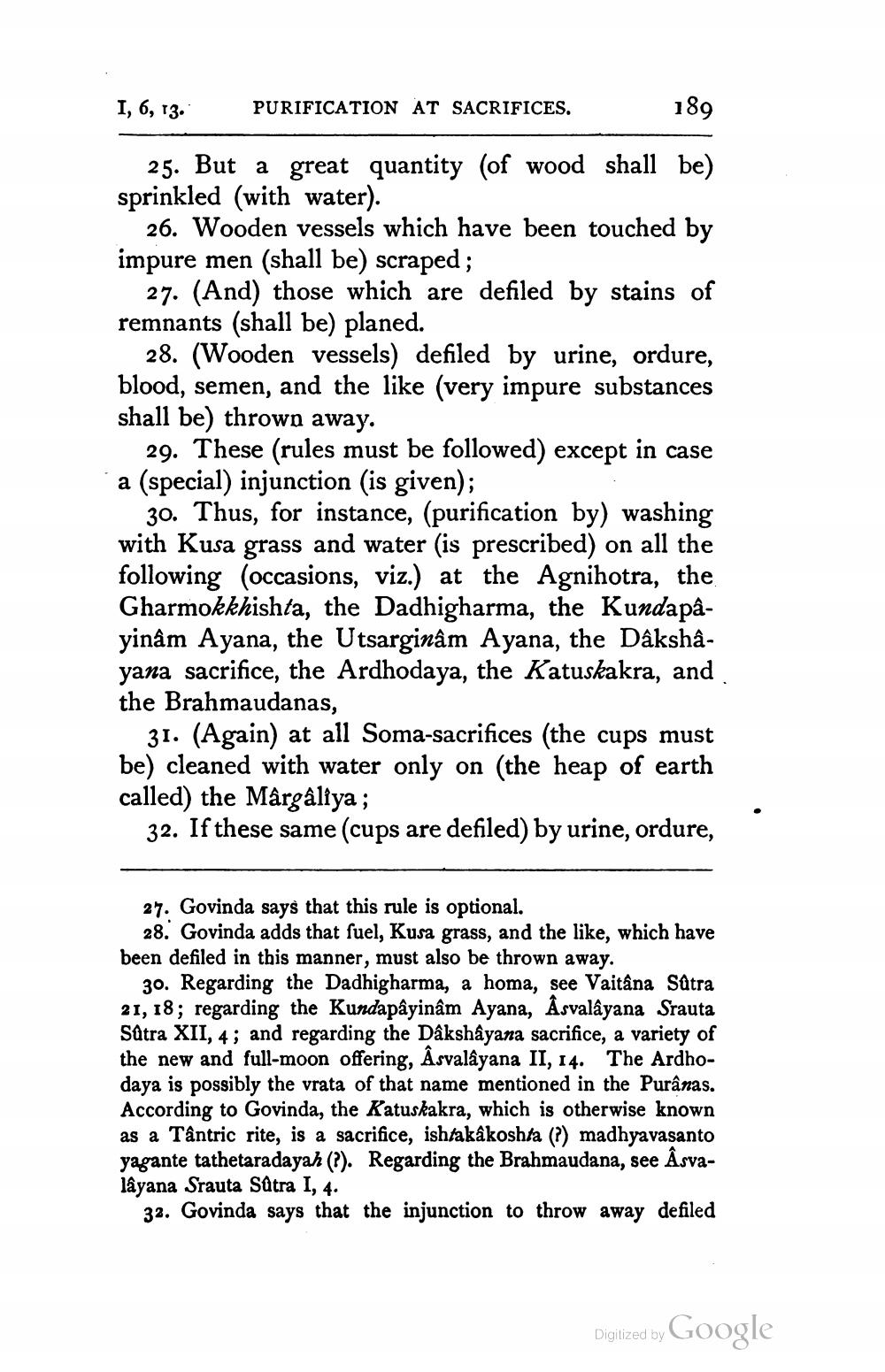________________
I, 6, 13.
PURIFICATION AT SACRIFICES.
189
25. But a great quantity (of wood shall be) sprinkled (with water).
26. Wooden vessels which have been touched by impure men (shall be) scraped ;
27. (And) those which are defiled by stains of remnants (shall be) planed.
28. (Wooden vessels) defiled by urine, ordure, blood, semen, and the like (very impure substances shall be) thrown away.
29. These (rules must be followed) except in case a (special) injunction (is given);
30. Thus, for instance, (purification by) washing with Kusa grass and water (is prescribed) on all the following (occasions, viz.) at the Agnihotra, the Gharmokkhishta, the Dadhigharma, the Kundapayinâm Ayana, the Utsarginam Ayana, the Dâkshâyana sacrifice, the Ardhodaya, the Katuskakra, and the Brahmaudanas,
31. (Again) at all Soma-sacrifices (the cups must be) cleaned with water only on (the heap of earth called) the Mârgâliya;
32. If these same (cups are defiled) by urine, ordure,
27. Govinda says that this rule is optional.
28. Govinda adds that fuel, Kusa grass, and the like, which have been defiled in this manner, must also be thrown away.
30. Regarding the Dadhigharma, a homa, see Vaitâna Sûtra 21,18; regarding the Kundapâyinâm Ayana, Asvalâyana Srauta Sätra XII, 4; and regarding the Dâkshấyana sacrifice, a variety of the new and full-moon offering, Â svalâyana II, 14. The Ardhodaya is possibly the vrata of that name mentioned in the Purânas. According to Govinda, the Katuskakra, which is otherwise known as a Tântric rite, is a sacrifice, ishtakâkoshta (>) madhyavasanto yagante tathetaradayah (?). Regarding the Brahmaudana, see Åsvalayana Srauta Sätra I, 4.
32. Govinda says that the injunction to throw away defiled
Digitized by Google




